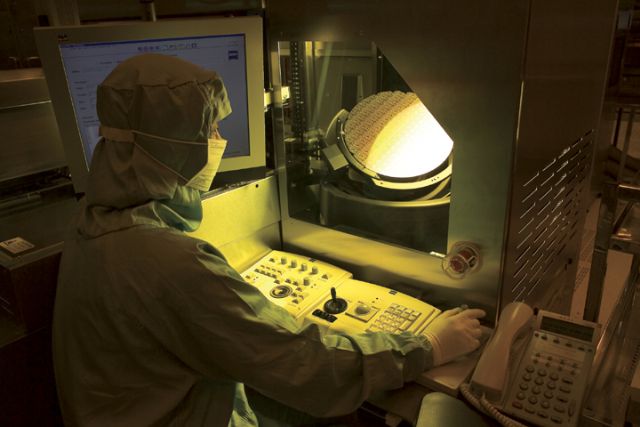TSMC Accelerates 10nm Process Project With Ambitious Goal
2014/07/04 | By Ken Liu
The Taiwan Semiconductor Manufacturing Co. (TSMC), the world’s No.1 pure silicon foundry supplier, is speeding up a 10nm process project codenamed the “Night Hawk Program” with the aim of forging ahead of the Intel Corp. in the field of advanced microchip processing technology within two years.
The project has mobilized over 400 R&D specialists, who work three work shifts and are paid 30% more base salary and 50% more bonus than their TSMC colleagues. Company chairman Morris Chang is the immediate leader of the 10nm team.
At a shareholder meeting held on June 24, Chang reported that his company is working closely with a “very important customer” on 10nm process technology, and that the two will co-introduce tapeouts on the process after a year. General production using the process is slated for 2016. Chang said that he is quite satisfied with the company’s progress on the project.
The chairman pointed out that competition has not previously existed between his company and Intel in 10nm process foundry operations, since TSMC uses its 10nm process mostly to make mobile device chips whereas Intel’s 10nm process is used mostly for to server chips.
When asked by shareholders about the company’s competition with Samsung in the foundry service sector, Chang replied that TSMC is outperforming Samsung in 14nm process foundry operations in terms of technological progress, manufacturing capacity, and about relationships with customers.
Chang went on to say that as the world economy is on the road to recovery, his company will not only achieve its sales goal for the second quarter but will also see a further increase in sales for the third three-month period. In the usually lukewarm fourth quarter, sales will “comfortably grow.” Throughout the second half of this year, the company’s production lines will run at full capacity.
The chairman assured his shareholders that “TSMC is almost successful” based on the facts that the company’s revenue, market share, and share price all hit all-time highs last year, and that growth momentum will continue throughout this year. He said the company is reaping the harvest from its huge investment in advanced process technologies over the past four or five years.
The TSMC executive pointed out that in 25 of the past 27 years the company has outdone the global semiconductor industry as a whole in rate of revenue increase, and that it will continue to hold the leadership in the years to come. He predicted that while the global semiconductor industry expands at an annual rate of 3-5% over next five years, his company’s sales will grow at a “comfortable double digit rate” this year.
Institutional investors too are optimistic about TSMC’s sales outlook, believing that competitors will be unable to erode TSMC’s dominant position in the global silicon foundry industry in the short term, even if they form partnerships.
Citigroup Global Markets Inc., for instance, feels that TSMC’s revenue for the second quarter reached the top of the targeted range, based on the fact that its combined income for April and May already amounted to 67% of the target for the quarter.
Running at full capacity, its 28nm process foundry is now the foremost driver of the outstanding growth at TSMC. Citigroup estimates that the company will end this year with over 34% of total revenues contributed by this foundry, and that the 20nm process will contribute more to the company’s revenue growth in the second half of the year than in the first.
Even producing at full capacity, TSMC is unable to fill the demand from IC design houses, which is being driven by the thriving consumer-electronics market. C.J. Hsieh, president of mobile-phone chip vendor MediaTek Inc., laments that distributors of his company’s handset chips will remain out of stock in the third quarter due to the shortage of foundry capacity at TSMC. (KL)




